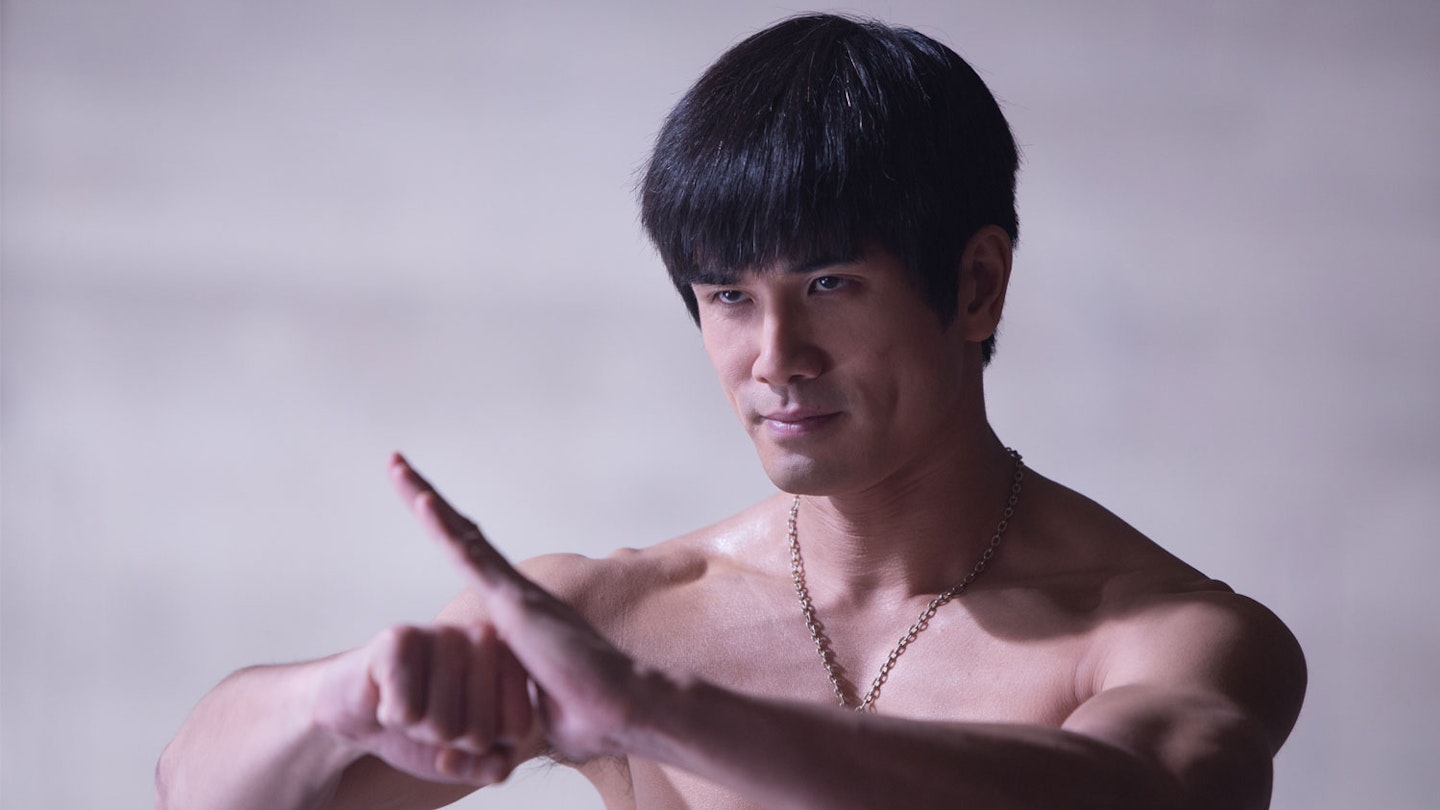The details change, depending on who’s recounting them, but the broad strokes seem pretty set in stone: in 1965 Bruce Lee, on the verge of becoming a big splash in Hollywood, fought Wong Jack Man in a no-holds- barred, down-and-dirty private brawl. At its heart was a fairly stark philosophical disagreement about the future of kung fu, with Man the traditionalist, and Lee the innovator, determined to bring it to a new, Western audience.
The ingredients are there for an interesting battle of wills between two diametrically opposed foes. Instead, George Nolfi’s dramatisation of a major event in the life of the greatest-ever movie martial artist is utterly anaemic. As biopics go, it makes Rob Cohen’s Dragon: The Bruce Lee Story look like Raging Bull.
But then, George Nolfi’s film is not really a biopic. It would be unfair to presume that the decision to turn the focus onto Billy Magnussen’s wannabe actor Steve McKee and his romance with a young Chinese girl, while Lee wafts in and out of his own movie, is a deeply cynical practice designed to appeal to Western audiences. It could be argued that McKee is a surrogate for the audience, a handy (fictionalised) character who gains access to both Lee and Man, allowing him to present both sides of the argument. But it’s not a good look.
It doesn’t help that Magnussen, a rising young actor who’s got a fine funnybone and has registered in short comedic bursts like The Big Short and this month’s Game Night, is in pure milquetoast mode here. If his character is based in any way on Lee’s great friend Steve McQueen, as the name suggests, someone forgot to tell him to try to approximate McQueen’s charisma.
Bruce Lee deserves better.
Ng fares much better, even though, at 40, he’s nearly 20 years older than the version of Lee he’s playing. Whether it’s debuting his infamous one-inch punch, taking out a gaggle of vaguely inept stuntmen, or delivering dialogue about how good he is, Ng nails the cocksure swagger that had everyone in Hollywood eating out of his deadly palm. And if he doesn’t move exactly like Lee, that’s fine — nobody does. Xia Yu is also fine as Wong Jack Man, with the film painting him as a more spiritual, calmer counterpoint to the often arrogant Lee.
It’s not a complete drag on your time. Given the prowess of the performers involved, it’s no surprise there are some decent fight scenes, including a couple of hilariously contrived brawls that punch up the fairly meagre running time. But the showdown between Lee and Man is meandering and often pretentious nonsense crying out for a great action director to come in and take it by the scruff of the neck. Instead, we get some flowery choreography from the bloke who directed The Adjustment Bureau. Lee deserves better. And, on the evidence here, so does Man.
